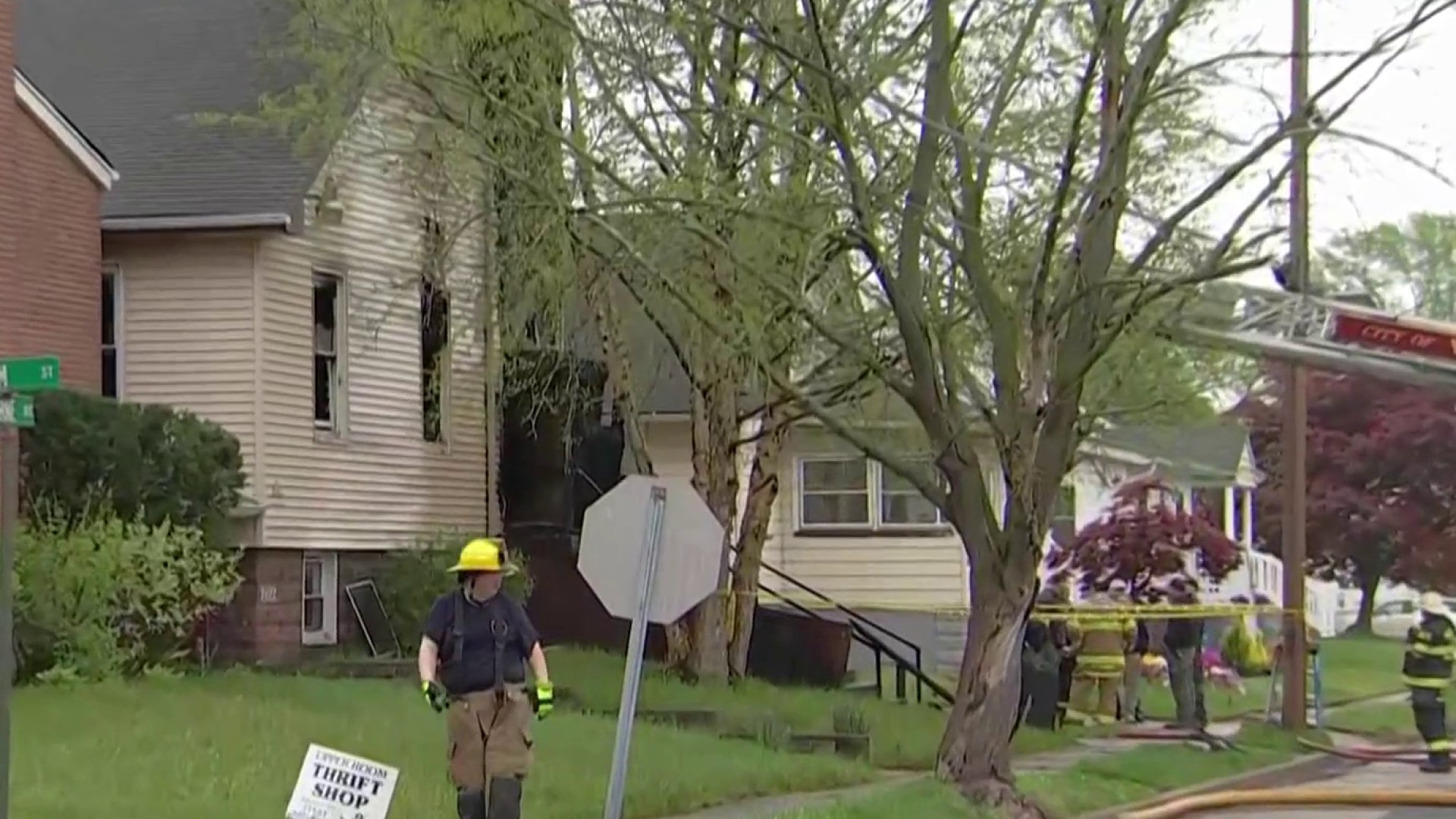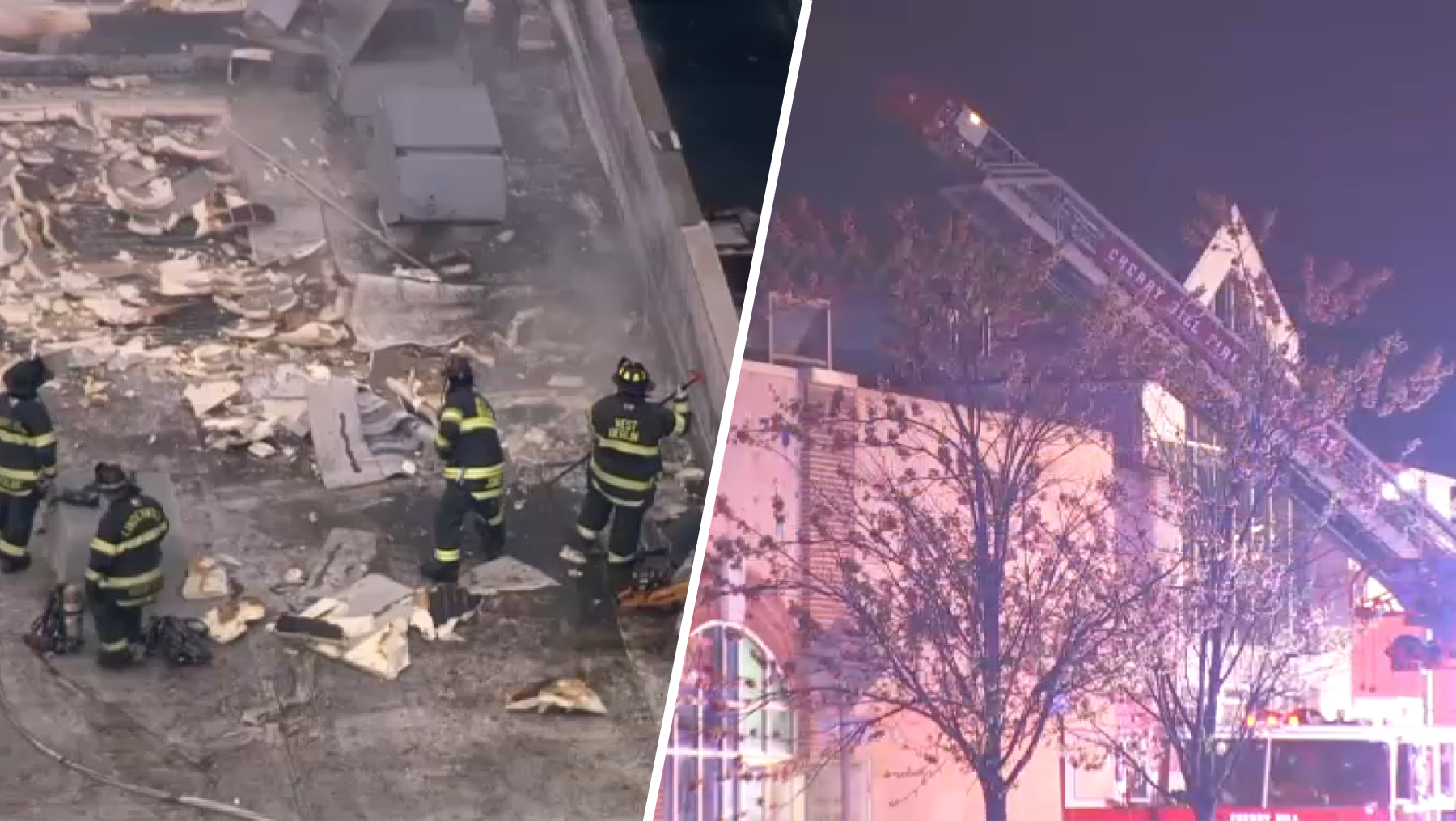On a block of Court Street in Newark between the Gigi Foushee Towers public-housing project and the abandoned, decaying Krueger-Scott Mansion is a boarded row house with a "NO LOITERING'' sign above the door.
Until a few months ago, the building was owned by Newark's mayor, Cory Booker _ now in the home~stretch of a run for the U.S. Senate _ who paid $175,000 for it in 2009.
Less than three weeks after Frank Lautenberg said he would retire from the U.S. Senate _ formally opening up the race for his seat _ Booker sold the property, one of two he purchased while mayor, for $1. The gift to Newark Now, the nonprofit Booker founded in 2003, was "an opportunity to give back to Newark,'' his campaign said on Friday.
To neighbors who've complained about the overgrown backyard and the squatters who live inside, the property stands as a marked contrast to Booker's public image as an urban crusader, a politician building a national reputation by confronting inner-city blight.
"He bought it and promised to be a good neighbor, but that hasn't occurred,'' Robert El, who owns the row house attached to Booker's, told The Record of Woodland Park. "Shortly after he bought it, the squatters started moving in.''
James Wigfall, who lives in the housing project around the corner, said the squatters are not a surprise when "you leave a building vacant long enough.'' Asked what he thought of Booker as a neighbor, Wigfall laughed. "No comment,'' he said.
Most politicians carefully construct their public image, and any facts that run counter to that image become a challenge.
Local
Breaking news and the stories that matter to your neighborhood.
Booker, 44, heads into the final stages of a U.S. Senate campaign largely fueled by his political celebrity, a fame built on a story that began when he moved into a gritty housing complex a few blocks from that empty row house. His life in Brick Towers, the initial setting for Booker's crusader persona, was discussed in a documentary nominated for an Academy Award and served as the scene for many of his oft-repeated stories highlighting urban problems. Now the mayor, who's saved a person from a burning building, is fighting back against attacks to that image as some of his stories are being called into account by Steve Lonegan, his Republican challenger in the Senate election; conservative publications like National Review and the media in general.
He defended himself against National Review when it resurrected doubts that date to 2007 about the existence of T-Bone, a drug dealer whom Booker said he befriended while living in Brick Towers. The same publication is questioning Booker's story about Wazn Miller, a teen shooting victim whom Booker says he found on the street and tried to help only to have him die in his arms. A police report released last week confirmed that Booker was there and aided the victim, but noted that Miller died later at a hospital.
Booker announced earlier this month he would cut ties to Waywire _ an online media company he co-founded last year _ and leave the company's board and donate his shares to charity. Before that announcement, Booker was under attack as a mayor more concerned with profiting from Silicon Valley investors than dealing with the city's intractable troubles. The move was to demonstrate that he would not profit from Waywire and that his interest in the company is not affecting his decision making, a Booker spokesman, Kevin Griffis, explained in that announcement.
Despite complaints described by neighbors near the vacant Court Street house, city records show no official complaints or violations. But that house is particularity sensitive because what neighbors and others in the city are saying about the property seems to contradict what Booker stands for.
Booker's campaign declined requests for an interview and referred all questions to a spokesman.
Booker's two empty buildings _ particularly the boarded-up Court Street structure _ and the continued questions about his stump-speech stories and his finances could present him with a challenge.
"When voters know you well, they'll cut you slack on certain aspects of your personal story,'' said Patrick Murray, director of the Monmouth University Polling Institute, who added that he doubts Booker's property ownership itself matters much to voters. "When they don't ... if there are flaws in the personal story, then that raises questions about your character.''
Brigid Harrison, political science professor at Montclair State University, said Booker's Court Street house, particularly, is "inconsistent with his image.''
"I don't think that there's an inconsistency with owning an investment property, for example,'' Harrison said. "But I do think it is problematic to own what amounts to an abandoned building. . If there are neighbors that are being deleteriously impacted because there are squatters who are living in the property, that, I think, is an inconsistency. Here is a mayor who has talked about urban blight.''
The mayor's campaign said he bought the Court Street building with hopes of renovating it and moving in. He even hired an architect, according to Griffis, but changed plans "after finding a lower-cost option on Longworth.''
In total, the Newark mayor spent $346,000 buying the buildings on Court and Longworth streets and about another $30,000 on property taxes, all while leaving both buildings vacant and renting an apartment for himself in another ward.
Booker, who grew up in Harrington Park, plans to move out of the apartment "soon'' and live in the Longworth building, Griffis said. People who live near that property say workers recently installed new exterior railings and moved furniture inside.
The fate of the Court Street building is less clear.
The church next door wanted to buy it and put it to use for the community, perhaps as a juvenile house, according to the Rev. Robert Jackson Jr., pastor of Israel Memorial AME Church. Jackson said he sent "at least three letters'' asking about the property and offering to purchase it.
The church "never heard a word back from the mayor,'' Jackson said.
"If you talk to him, let him know we're here,'' he asked a reporter.
Newark Now, which received the property in March, is trying to figure out how to use it, according to its president, Lavar Young.
"What does it matter?'' Young said when asked about his plans for the building.
"We're not sure what we're doing with the property just yet,'' he later added. "Once we do a full analysis of what the property consists of, what it would cost to repair ... then we'll assess what the final outcome for it will be.''
Griffis said the mayor gave the property to Newark Now hoping that it would benefit the city. And, Griffis said, Booker has worked hard as mayor to improve Newark's neighborhoods.
Booker's opponent, Steve Lonegan, the Republican candidate, also owns several properties, including two residential buildings. Both of those buildings _ one in Bogota and one in Teaneck _ are rented out, according to Lonegan's tax returns. He earned more than $500,000 in rent last year, although he spent about as much on the buildings. All together, he lost money on them two of the past three years.
Booker did not include his properties on his tax returns because he made no money from them.



